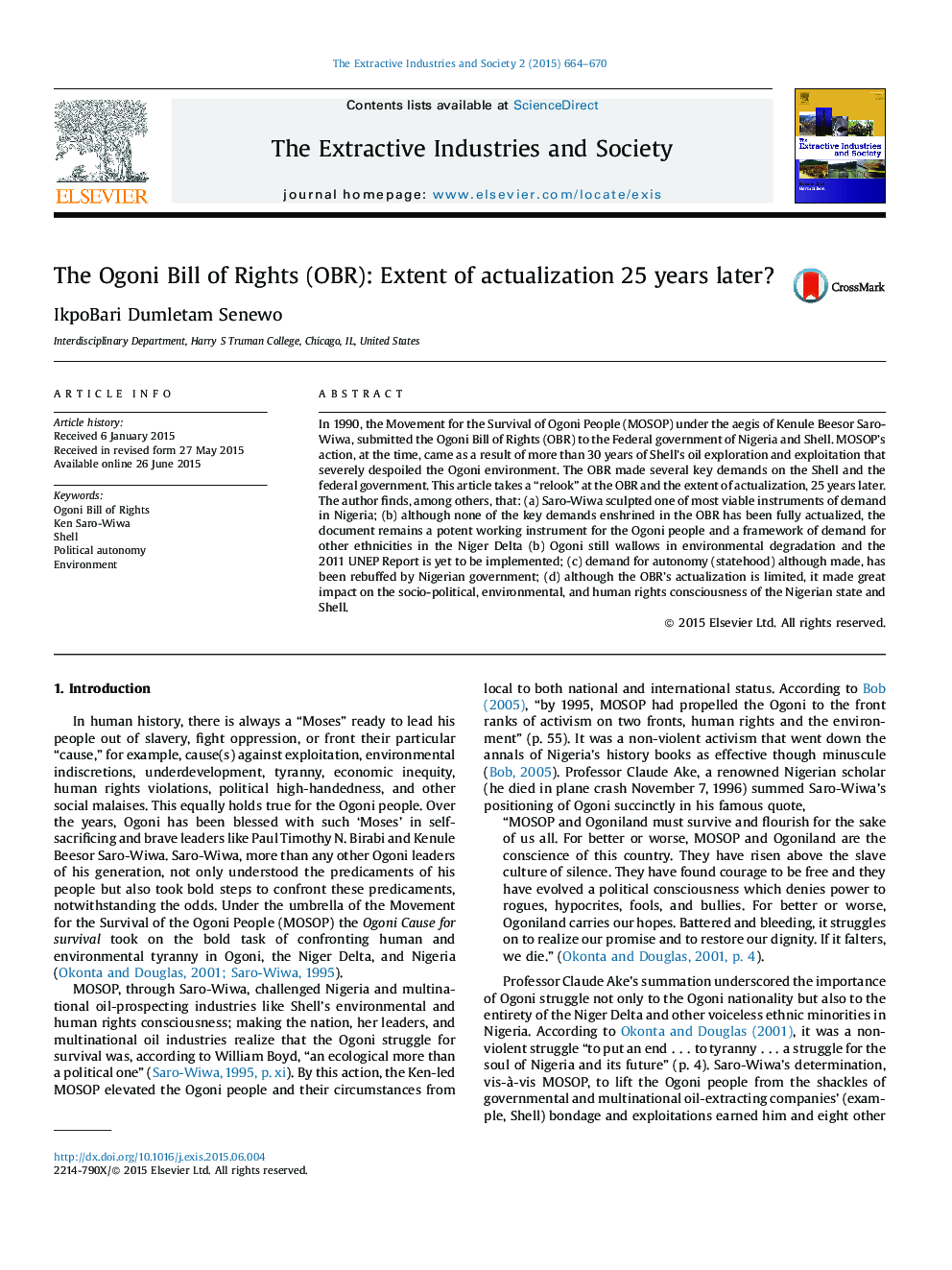| Article ID | Journal | Published Year | Pages | File Type |
|---|---|---|---|---|
| 1047542 | The Extractive Industries and Society | 2015 | 7 Pages |
In 1990, the Movement for the Survival of Ogoni People (MOSOP) under the aegis of Kenule Beesor Saro-Wiwa, submitted the Ogoni Bill of Rights (OBR) to the Federal government of Nigeria and Shell. MOSOP’s action, at the time, came as a result of more than 30 years of Shell’s oil exploration and exploitation that severely despoiled the Ogoni environment. The OBR made several key demands on the Shell and the federal government. This article takes a “relook” at the OBR and the extent of actualization, 25 years later. The author finds, among others, that: (a) Saro-Wiwa sculpted one of most viable instruments of demand in Nigeria; (b) although none of the key demands enshrined in the OBR has been fully actualized, the document remains a potent working instrument for the Ogoni people and a framework of demand for other ethnicities in the Niger Delta (b) Ogoni still wallows in environmental degradation and the 2011 UNEP Report is yet to be implemented; (c) demand for autonomy (statehood) although made, has been rebuffed by Nigerian government; (d) although the OBR’s actualization is limited, it made great impact on the socio-political, environmental, and human rights consciousness of the Nigerian state and Shell.
